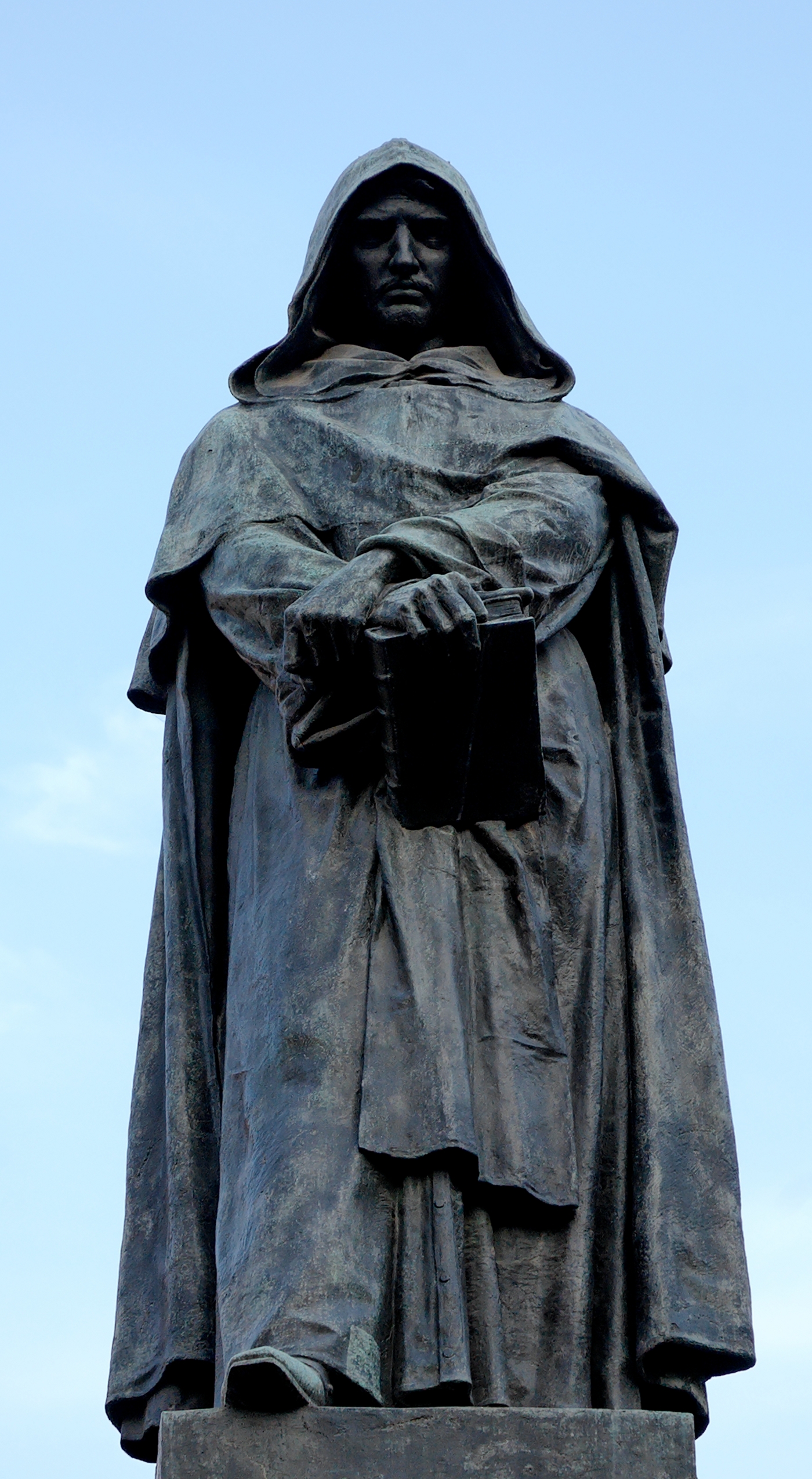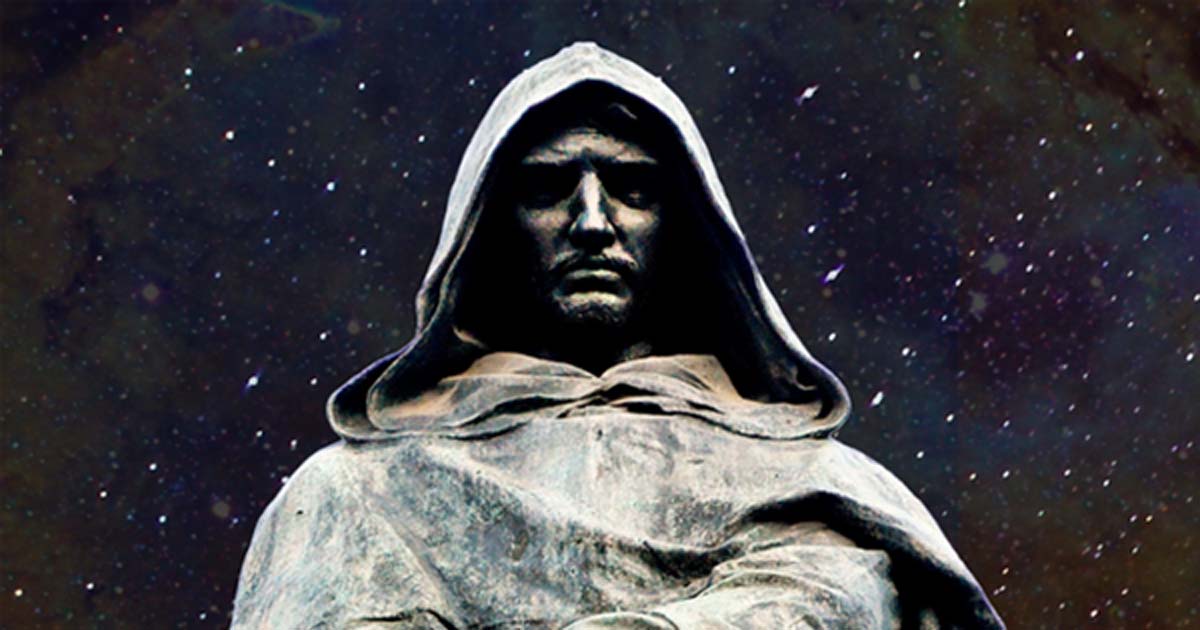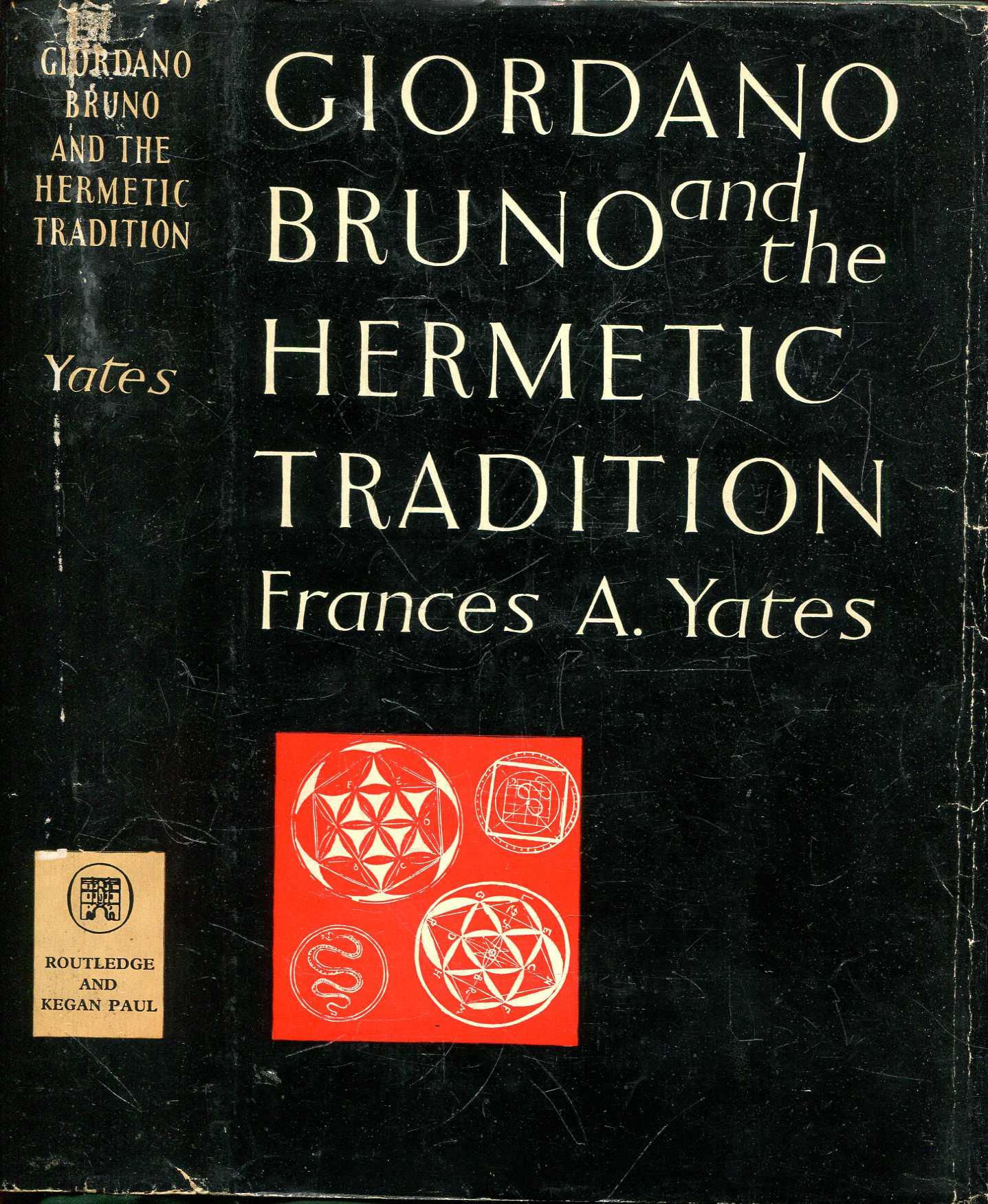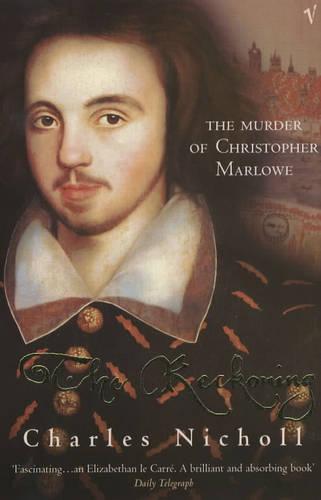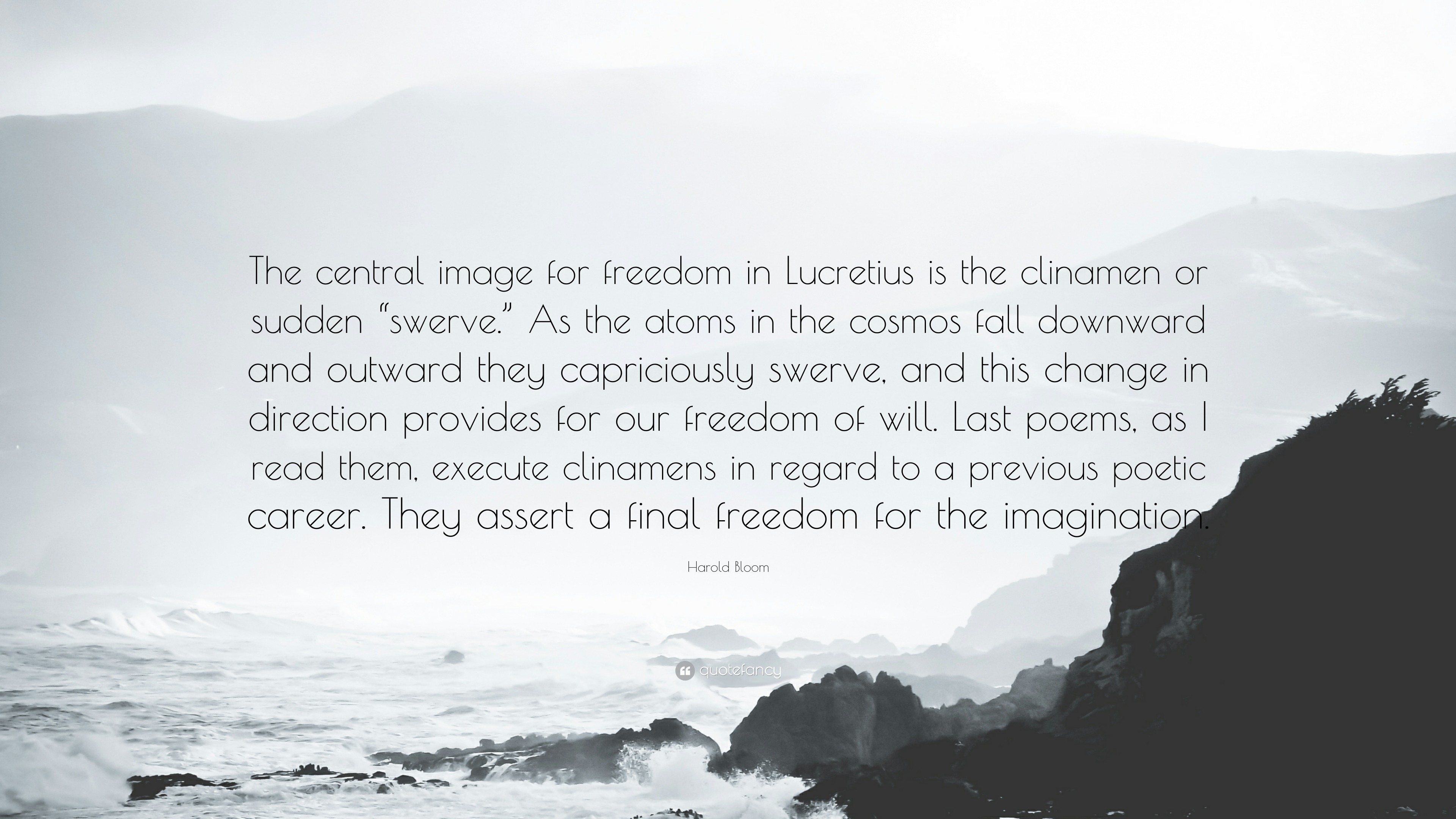A Free Spirit
-
Douglas Mercer
- Posts: 10948
- Joined: Tue Mar 28, 2023 7:29 pm
A Free Spirit
Douglas Mercer
August 7 2024
In all the long years of blistering Christian ignorance little was more ignorant than when on February 17 1600 the Catholic Church burned Giordano Bruno at the stake for holding opinions that ran counter to church doctrine. This was a prime example of a fossil religion persecuting the future, the future of free thought. In the growing European Republic Of Letters, a network of new thinking and new learning was bringing our people back to its source of Greek thought and Bruno was a central and radiating if somewhat subterranean figure.
As Kevin Alfred Strom has told us we could have gone to the moon in the year 1000. We knew little in 1500 that we did not know in the year zero; but the Christian religion with it stupefying doctrines razed our temples and destroyed our manuscripts and an insipid amnesia began to hold sway; and so the natural transmission from generation to generation was broken. In that millennium and half of cultural death nothing was added to our store of scientific knowledge; indeed much, very much was lost. So instead of following the dictates of nature to go ever forward and ever upward our people regressed under the wicked tutelage of an evil church; and when some among us began to rouse themselves out this civilizational stupor they had to battle the authorities all along the line.
Christopher Marlowe called Jesus a juggler (a magician) and helped form the famous school of the night devoted to free thinking unencumbered by the dogmas and shibboleths of his time; in Faustus he gave us the archetypal man of intellectual adventure, who through his learning tried to solve the riddle of the universe; dare to know said Kant, and so these figures did; but for Christianity knowledge was itself a sin, that was what that story with the apple was all about. And though it is deep mystery as to what happened, there is every reason to think that dagger in Deptford which felled Marlowe had something to do with his fearlessness in the face of what was an attempt after all to murder the minds of our people.
Giordano Bruno was one of the flames that kindled this new thought in England, having resided there from 1583 to 1585, just before the art and drama took off; he was another of our holy heroes, killed in the end by the ignorant seeking that knowledge would not see the light. While in London he traveled in those very same secret circles that would give birth to the character of Faustus and Shakespeare as well with his picture of man infinite in faculties who was like a god.
“Nothing stands still, but all things swirl and whirl as far as heaven and beneath is seen. All things move, now up, now down, whether on a long or short course, whether heavy or light; perhaps you too go along the same path and to a like goal. For all things move till overtaken, as the wave swirls through the water, so that the same part moves now from above downward, now from below upward, and the same hurly-burly imparts to all the same successive fate.”
This is poetry perhaps, not science, but it is beautiful poetry, the poetry of the Lucretius come to life with its vision of a universe of dynamism; the Christian Pascal said that the thought of vast interstellar spaces made him afraid; the Christian Donne said the new learning meant that all coherence was gone; both were wrong on all counts of course, and men like Bruno when they contemplated the endless vistas of reality exulted, they did not recoil in fear; the Christian mindset at the time was that the universe was very small, so small that what the stars were but pin pricks in a dome that covered the vault of heaven, not that they were of fire, the very emanation of the fire of the gods.
Bruno was mocked and ridiculed for supporting the opinion of Copernicus that the earth did go round; as a lowly anachronistic abbot said at the time “it was his own head which rather did run round, and his brains did not stand still.” These are the small jokes of small men; men that in the end history always leaves behind and forgets about with full justice; it is to men like Bruno that the future belongs; seemingly at the margins they are really at the beating center of things.
***
It may seem that in terms of knowledge our age has been emancipated; but this is just another trick of fame; today we have a different dogma; those scientists who know the vastness of the universe think that what they can describe is all there is; or if they admit some doubt like the ignorant man in the street they fall back on: who knows? But dare to know was the watchword, and it was meant; it was Pico who wrote On The Dignity Of Man, that we were not fated to live in ignorance of any kind but that our faculties are infinite.
Some serious scientists pose the question is the universe a living being, and should cosmologists behave like biologists; but they will of course hedge about in the land of as if; when it most obviously is; and that language is living entity will never be entertained; when it most obviously is, this will be the last card to fall; so the way forward that men like Bruno showed has not been satisfied in our new age of reason; in fact not until the last ossified shibboleths have been expelled will the truth come to light; that it will be a surprise is unsurprising, for nothing is ever as simple as people think, and thinking is an art that is yet to come.
And they say that as they led him to the flaming pyre they sealed the lips of Giordano Bruno and placed a cross in front of his face. His final act was to avert his gaze from such a mindless torpor. And as new and ever more devious idols are presented to us let us have the courage to do likewise.
August 7 2024
In all the long years of blistering Christian ignorance little was more ignorant than when on February 17 1600 the Catholic Church burned Giordano Bruno at the stake for holding opinions that ran counter to church doctrine. This was a prime example of a fossil religion persecuting the future, the future of free thought. In the growing European Republic Of Letters, a network of new thinking and new learning was bringing our people back to its source of Greek thought and Bruno was a central and radiating if somewhat subterranean figure.
As Kevin Alfred Strom has told us we could have gone to the moon in the year 1000. We knew little in 1500 that we did not know in the year zero; but the Christian religion with it stupefying doctrines razed our temples and destroyed our manuscripts and an insipid amnesia began to hold sway; and so the natural transmission from generation to generation was broken. In that millennium and half of cultural death nothing was added to our store of scientific knowledge; indeed much, very much was lost. So instead of following the dictates of nature to go ever forward and ever upward our people regressed under the wicked tutelage of an evil church; and when some among us began to rouse themselves out this civilizational stupor they had to battle the authorities all along the line.
Christopher Marlowe called Jesus a juggler (a magician) and helped form the famous school of the night devoted to free thinking unencumbered by the dogmas and shibboleths of his time; in Faustus he gave us the archetypal man of intellectual adventure, who through his learning tried to solve the riddle of the universe; dare to know said Kant, and so these figures did; but for Christianity knowledge was itself a sin, that was what that story with the apple was all about. And though it is deep mystery as to what happened, there is every reason to think that dagger in Deptford which felled Marlowe had something to do with his fearlessness in the face of what was an attempt after all to murder the minds of our people.
Giordano Bruno was one of the flames that kindled this new thought in England, having resided there from 1583 to 1585, just before the art and drama took off; he was another of our holy heroes, killed in the end by the ignorant seeking that knowledge would not see the light. While in London he traveled in those very same secret circles that would give birth to the character of Faustus and Shakespeare as well with his picture of man infinite in faculties who was like a god.
“Nothing stands still, but all things swirl and whirl as far as heaven and beneath is seen. All things move, now up, now down, whether on a long or short course, whether heavy or light; perhaps you too go along the same path and to a like goal. For all things move till overtaken, as the wave swirls through the water, so that the same part moves now from above downward, now from below upward, and the same hurly-burly imparts to all the same successive fate.”
This is poetry perhaps, not science, but it is beautiful poetry, the poetry of the Lucretius come to life with its vision of a universe of dynamism; the Christian Pascal said that the thought of vast interstellar spaces made him afraid; the Christian Donne said the new learning meant that all coherence was gone; both were wrong on all counts of course, and men like Bruno when they contemplated the endless vistas of reality exulted, they did not recoil in fear; the Christian mindset at the time was that the universe was very small, so small that what the stars were but pin pricks in a dome that covered the vault of heaven, not that they were of fire, the very emanation of the fire of the gods.
Bruno was mocked and ridiculed for supporting the opinion of Copernicus that the earth did go round; as a lowly anachronistic abbot said at the time “it was his own head which rather did run round, and his brains did not stand still.” These are the small jokes of small men; men that in the end history always leaves behind and forgets about with full justice; it is to men like Bruno that the future belongs; seemingly at the margins they are really at the beating center of things.
***
It may seem that in terms of knowledge our age has been emancipated; but this is just another trick of fame; today we have a different dogma; those scientists who know the vastness of the universe think that what they can describe is all there is; or if they admit some doubt like the ignorant man in the street they fall back on: who knows? But dare to know was the watchword, and it was meant; it was Pico who wrote On The Dignity Of Man, that we were not fated to live in ignorance of any kind but that our faculties are infinite.
Some serious scientists pose the question is the universe a living being, and should cosmologists behave like biologists; but they will of course hedge about in the land of as if; when it most obviously is; and that language is living entity will never be entertained; when it most obviously is, this will be the last card to fall; so the way forward that men like Bruno showed has not been satisfied in our new age of reason; in fact not until the last ossified shibboleths have been expelled will the truth come to light; that it will be a surprise is unsurprising, for nothing is ever as simple as people think, and thinking is an art that is yet to come.
And they say that as they led him to the flaming pyre they sealed the lips of Giordano Bruno and placed a cross in front of his face. His final act was to avert his gaze from such a mindless torpor. And as new and ever more devious idols are presented to us let us have the courage to do likewise.

